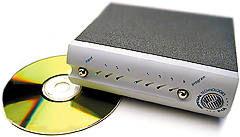| Columns Retired Columns & Blogs |
LATEST ADDITIONS
|
Jan 21, 2001 |
88 comments
Have you ever had a pal over to listen to your system, only to find under the scrutiny of the audition that you hear your system differently than when you were alone?
Does your system sound different to you when other people are listening critically to it?
Yes, it sounds much worse
23% (40 votes)
Yes it sounds much better
9% (16 votes)
No it sounds the same either way
56% (98 votes)
I don't have friends listen to my system
11% (20 votes)
Total votes: 174






